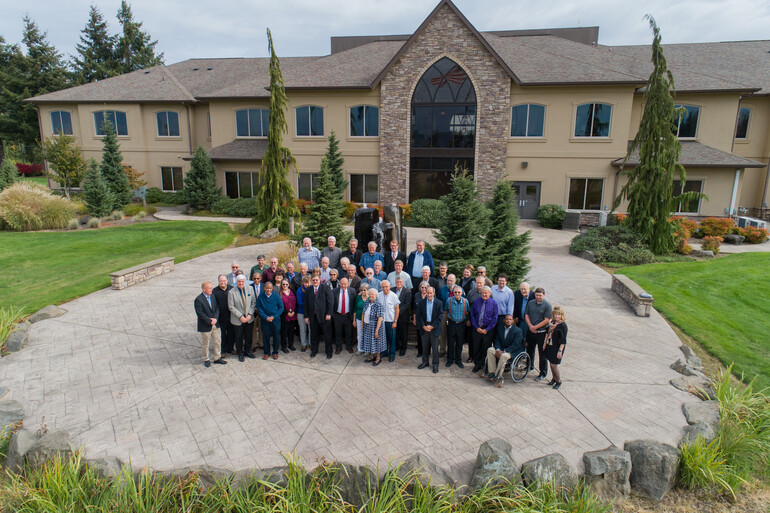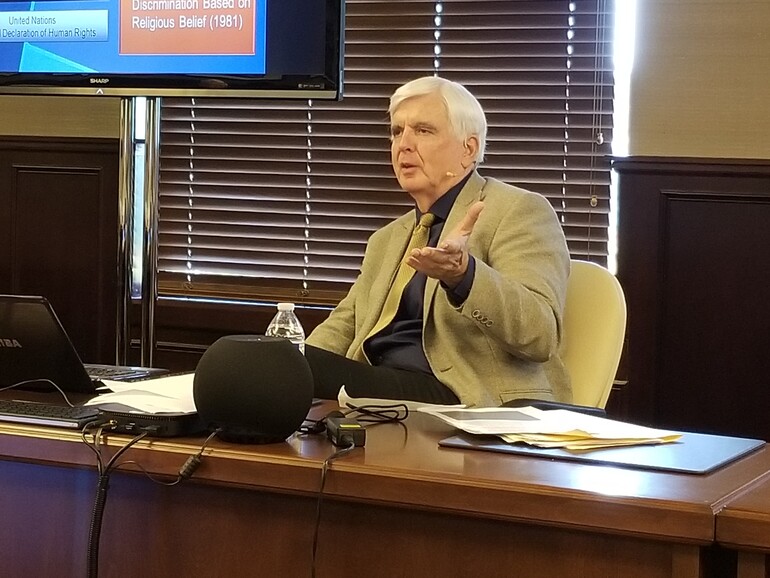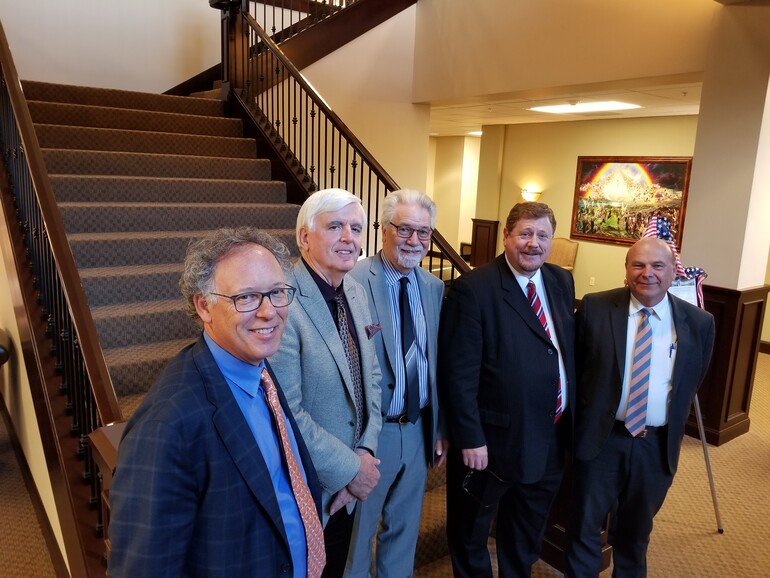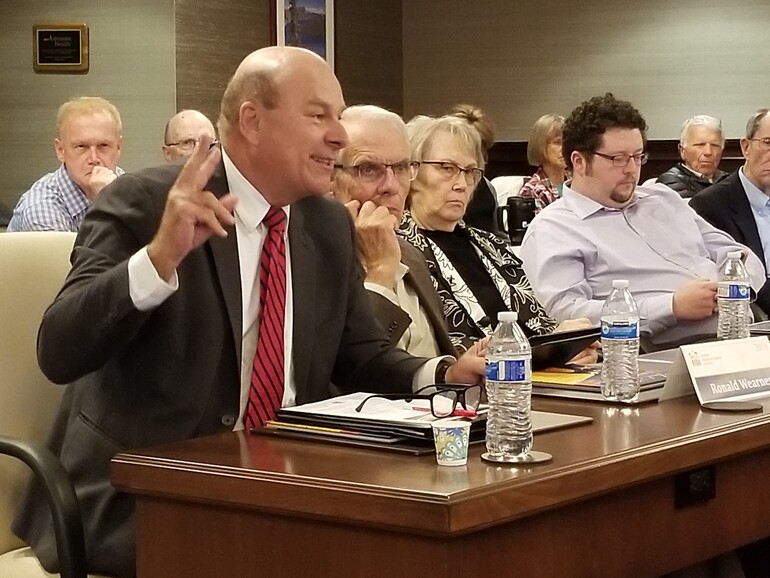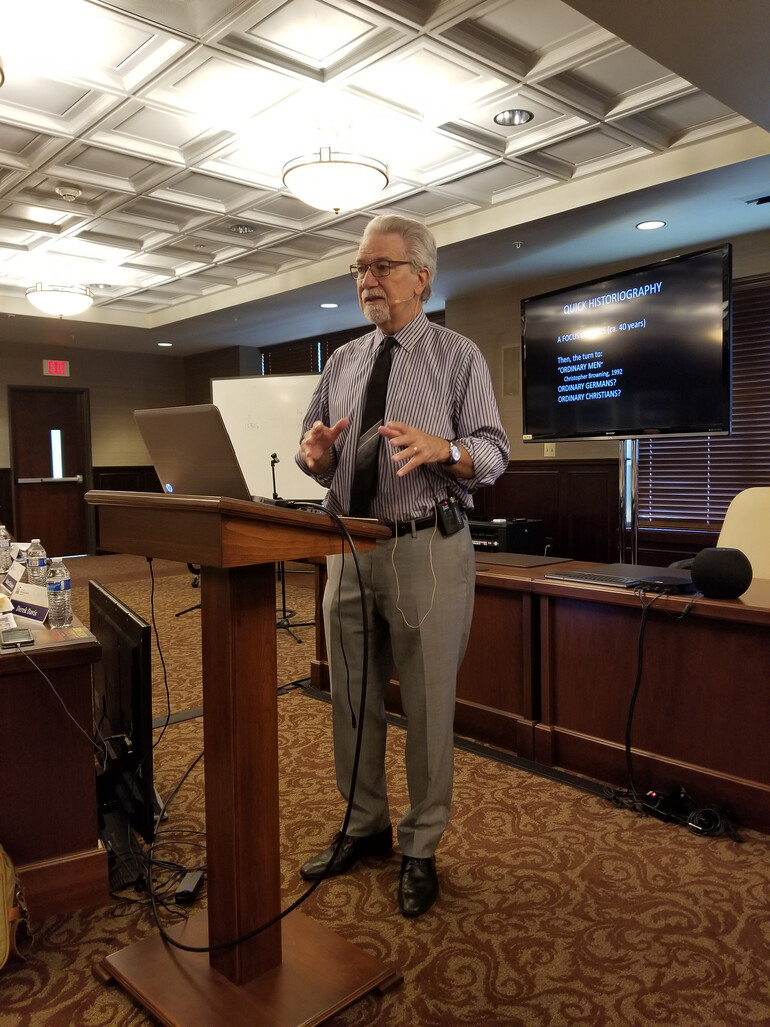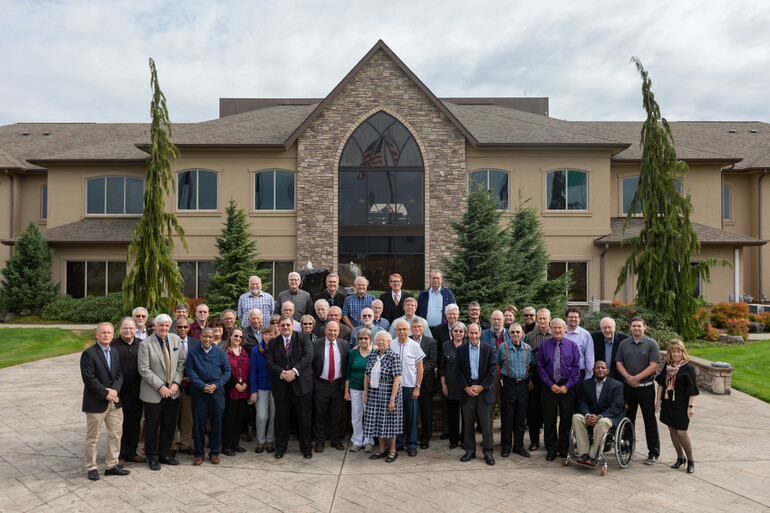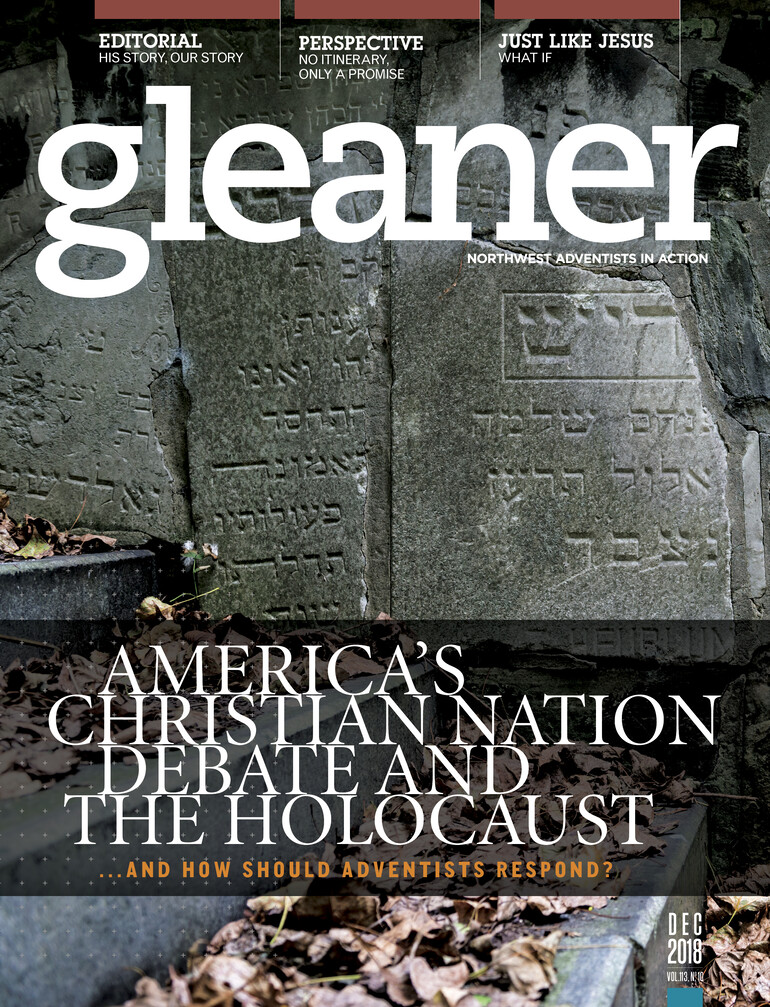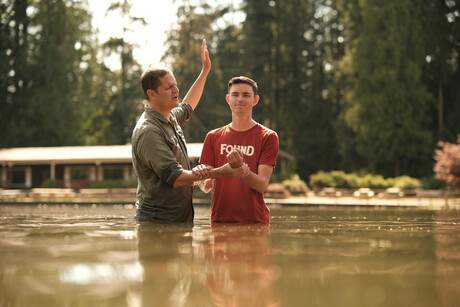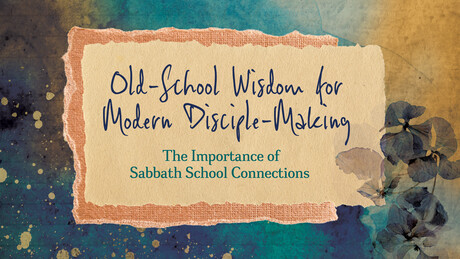Seventh-day Adventist members in the Pacific Northwest and throughout the United States are often conflicted in their view of the constitutional separation of church and state. After all, Christians are no different than the average citizen in favoring that which seems to favor them. But deep concerns accompany any move to nationalize freedoms for one group and restrict them for others. Recent history has profound lessons for those who truly value liberty and justice for all.
These lessons were in stark display during a powerfully unique seminar conducted October 1–2, 2018, at the North Pacific Union Conference in Ridgefield, Washington.
The majority of more than 60 who attended were Adventist professionals from throughout the United States, including attorneys and capitol pastors who make up the advisory board of the Northwest Religious Liberty Association (NRLA). One quarter of the group had no affiliation with the church, including two keynote speakers from Baylor and Pacific Lutheran universities. The common bond: Respectful support for religious liberty was shared by all.
During the seminar, this distinguished group focused on discussing common concerns between America’s Christian nation debate and harsh lessons drawn from the Holocaust. To undergird such a serious agenda, Gregory W. Hamilton, NRLA president, and his assistant, Rhonda Bolton, put together a robust lineup of speakers and presentations.
The guest speakers included some of the most qualified experts in the nation on the subjects of the founders’ intentions regarding the constitutional separation of church and state, its current rapid erosion, and the dangers of Christian nationalism through the historical lens of the Holocaust in Germany.
America’s Christian Nation Debate
Derek H. Davis, retired director and chairman of the J.M. Dawson Institute of Church-State Studies at Baylor University in Texas, highlighted the discussion of America as a Christian nation. He asked if the nation’s founders intended to establish a Christian nation by law. Was there a crucial distinction made by them between secular-legal and cultural constructs with the intent of safeguarding pluralistic religious realities? To what extent did they intend to separate church and state, as well as religion and the state? Like the constitutional founders, is there a distinction to be made today between a culturally religious nation and a Christian nation by law? If so, why is such a distinction important for the evangelical world and the Seventh-day Adventist Church to understand?
Such questions are admittedly rhetorical considering today’s dangerous emotional thirst for Christian nationalism and control of the government. But they are questions that continually need to be kept before our church and the nation.
Davis' five lectures included 1) a sweeping overview of the historical philosophical influences on the founders, 2) a close examination of the language of the eleven drafts of the religion clauses of the First Amendment and how the founders intended to do more than just prevent the establishment of a national church or prevent nonpreferential establishments of religion, 3) an analysis of the emergence and growth of church-state separation in the nation’s first half-century, 4) the concept of a "Christian nation" in light of the religious beliefs of the principal Founding Fathers, and 5) a close look at the strengths and weaknesses in recent court decisions.
Davis is the author of many books, including Religion and the Continental Congress, 1774–1789: Contributions to Original Intent, The Oxford Handbook of Church and State in the United States, and Original Intent: Chief Justice Rehnquist and the Course of American Church-State Relations.
Christian Nationalism and the Holocaust
One of the highlights of the two-day seminar was listening to Robert Ericksen, who is Kurt Mayer Chair in Holocaust Studies at Pacific Lutheran University and author of Complicity in the Holocaust: Churches and Universities in Nazi Germany. Ericksen is the world’s leading expert on the relationship between Christian nationalism and the Holocaust in Germany. He serves as a leading consultant to the Holocaust Museum in Washington, D.C., and Holocaust museums internationally.
Ericksen spoke on how an advanced, highly educated, Christian nation grew to enthusiastically accept and support Nazi ideology. He explained how churches and universities found in Adolf Hitler a national savior to restore the honor of Germany following World War I.
More important was his explanation of how the unbridled enthusiasm of the Christian right — Protestants (especially Lutherans) and Catholics and their lack of criticism for Hitler’s persecution of the Jews — made them thoroughly complicit in the ultimate crimes of the Holocaust. How so? They supported Hitler because of his nationalism and focus on family values. His pathological anti-Semitism did not directly affect them, and history records they actually fostered and encouraged it. In doing so, they revealed their own deeply entrenched anti-Semitism.
For example, Gerhard Kittel, the leading German Lutheran and Protestant theologian of his day and a lexicographer of biblical languages, was an enthusiastic supporter of the Nazis and harshly critical of Jews. Yet he was a pious and ardent man of Christian devotion and ritual, which belied his rampant anti-Semitism.
Kittel’s widely spread views galvanized Christian prejudice in ways that made the Holocaust possible. In a recently published research essay in Kirchliche Zeitgeschicte (vol. 31/2, 2018) titled “Devotion, Protestant Voters, and Religious Prejudice: 1930s Germany and Today’s America,” Ericksen notes that “voter analysis and other sorts of evidence show us that Kittel was not alone. It was voters in the most pious Protestant regions of Germany that led to Hitler’s appointment as chancellor in 1933.”
One month after Hitler had been sworn in, the German parliament (Reichstag) building was destroyed by fire. This Reichstag conflagration was blamed on insurrection attempts by communists and socialists. The ensuing panic led theological moderates to persuade political moderates in the Reichstag to give Hitler a two-thirds majority to pass an “Enabling Act” that gave Hitler absolute dictatorial authority to follow through with his ironic promise to “make Germany great again.”
In effect, Ericksen pointed out, Germany’s intellectual and spiritual leaders gave the highly religious population permission to participate in the Nazi regime — and thus in crimes against humanity. Dietrich Bonhoeffer and Martin Niemoller were representative of a small minority of dissidents among the clergy. But it was churchmen and academics — including a clear majority of theological moderates — that “provided the rationalizations and adjustment of moral norms that permitted ordinary Germans to accept and even implement the regime’s brutal and murderous policies.”
In answering questions following the lecture, Ericksen pointed out how Hitler’s propaganda slogan, “Make Germany Great Again,” is eerily like what we hear today. The difference is that Germany truly was under international economic duress and humiliation, a catastrophic national meltdown in the aftermath of World War I.
Ericksen suggested unfounded fear and paranoia could have the effect of a self-fulfilling prophecy in which America begins to head down the same road of dictatorship, even during relatively peaceful and stable economic times. In doing so, America would be committing a self-inflicted wound that would have catastrophic consequences for the world community. The potential trigger? A rapid series of events that would create internal instability like in pre-World War II Germany.
The group engaged with Ericksen’s presentation was clearly challenged to make contemporary applications. What would it take for religious leaders in the United States to welcome nationalistic reforms, all in the name of evangelical priorities? Or has it already begun to happen? Is it unthinkable that Christian churches would allow desired ends to justify horrific means, as did their Christian brothers and sisters in Germany decades ago?
Perhaps it is good to remember Martin Niemoller’s prophetic and now oft-quoted warning — a warning to all of us: “First they came for the socialists, and I did not speak out — because I was not a socialist. Then they came for the trade unionists, and I did not speak out — because I was not a trade unionist. Then they came for the Jews, and I did not speak out — because I was not a Jew. Then they came for me — and there was no one left to speak for me.”
Other Presentations
Nicholas P. Miller is director of the International Religious Liberty Institute and professor of church history at Andrews University in Berrien Springs, Michigan. Miller spoke on the Protestant Reformation’s influence on the constitutional founders. He warned how factions on the far right and far left are creating a self-destructive path for our country’s constitutional future as a democratic republic.
Hamilton opened the conference by highlighting how Thomas Jefferson’s and James Madison’s debates with Patrick Henry in the Virginia Assembly in 1776 — over what constituted true religious freedom and how far to separate church and state — ultimately influenced the drafting and ratifying of the First Amendment of the Constitution.
Other presenters, including Kevin James, pastor; Alan J. Reinach, attorney; Edward Woods III; and Lincoln Steed, Liberty editor, provided additional layers to the overall theme.
Today’s Tug-of-War
One thing is abundantly clear from this recent conference: Those who most closely follow the trajectory of religious liberty in this nation and around the world are concerned. They see powerful forces seeking to reinterpret the Establishment Clause provision in the First Ammendment. Those forces hope to do away with the separation of church and state so that government will support religious institutions and dogmas with the intent of solving the moral ills of our nation.
Led by constitutional and historical revisionist David Barton, there is a movement afoot called “Project Blitz” that seeks to overwhelm and influence state legislatures to introduce and pass bills that will eventually overthrow the constitutional separation of church and state. They also desire to eliminate certain aspects of the Equal Protection Clause of the Fourteenth Amendment: 1) the restriction of direct government funding of religious institutions, 2) free speech restrictions on faith-based organizations that receive funding for charitable social work, and 3) equal constitutional protections for women, ethnic minorities and same-sex people. Establishing the United States as a Christian nation by law is their main goal — to restore what they perceive to be “the good old days.”
Admittedly, there is a religious/secular tug-of-war going on. The religious right is reacting to the secular left's efforts in recent years to marginalize the free exercise of religion. Those extreme efforts have failed to recognize government must have a sufficient compelling interest when lawfully denying or restricting the constitutional right of individuals and institutions of faith to exercise and maintain their religious mission and practices. They have attempted to defeat state religious freedom restoration acts that ensure the right of institutions to hire only those who meet their mission standards and purposes and ensure that business owners and employees are not forced to violate their conscience and their rights to free speech. The recent U.S. Supreme Court ruling in the Masterpiece Cake situation highlights this war over whose equally guaranteed rights will prevail.
Both forces are harmful to our constitutional health, and yet the nation’s founders anticipated this severe tension. That is why they created an internal check and balance within the very wording of the First Amendment to prevent the country from being overrun by either extreme in the great church-state debate — a puritanical versus godless society. Remove this balancing safeguard and our nation’s constitutional guarantees will be lost and, with that, our civil and religious freedoms.
Sandra Day O’Connor, retired Supreme Court justice, summed it up best: “The religious zealot and the theocrat frighten us in part because we understand only too well their basic impulse. No less frightening is the totalitarian atheist who aspires to a society in which the exercise of religion has no place.”
Our Church's Prophetic Mission and Responsibility
What is the Seventh-day Adventist Church's prophetic mission in the United States of America and around the world? The Three Angels' Messages and gospel commission are clear, as are the lessons of history. Lest we become complicit in repeating the sins of the Holocaust, we must be steadfast in promoting strict principles of democracy, respect and religious liberty — not just on behalf of Adventists, or Christians, but for people of all nations and faiths.
In this currently divisive and polarizing climate, we must fortify ourselves with a sound worldview regarding church and state. This will help us diplomatically dispel myths and promote the truth in a balanced and effective manner in our public testimonies and activities when called upon to be faithful ambassadors for Christ to our neighbors and fellow church members or at the highest levels of government. This is the mission of the Northwest Religious Liberty Association (NRLA). This is one of the vital missions of the church and of every Seventh-day Adventist church member. Now is the time for contemporary Josephs and Daniels to step forward.
Regardless of which perspective one tends to favor regarding the constitutional separation of church and state, we need to speak up and not be passive. As John Hancock once wrote, “I conjure you, by all that is dear, by all that is honorable, by all that is sacred, not only that ye pray but that ye act.” Find a way. Even if you think it is a lost cause, write your congressperson and take a group with you to let your voices be heard. Our country’s future, and our freedom to speak the truth, depends on each of us.




